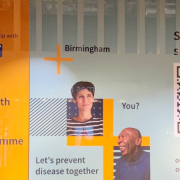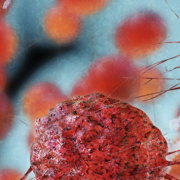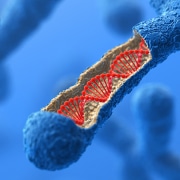Diverse genomic study pinpoints Covid-19 variant
Sometimes data diversity can make the difference. We look at findings from a new Covid-19 study to find out how
A recent study, published in Nature Genetics, has pinned down a specific variant in the OAS1 gene that provides protection against Covid-19. Researchers achieved this with a diverse approach, examining genomes of people with African ancestry after prior studies of predominantly European populations.
OAS again
The connection between the OAS genes and Covid-19 has been documented before. As previously covered in this blog, researchers from Sweden were looking at pieces of neanderthal DNA still present in the genomes of people with European and Asian ancestry and discovered the OAS1 gene’s protective qualities.
The gene encodes an enzyme that is involved with antiviral mechanisms in the cell. People with higher levels of this enzyme are less likely to contract the condition and, if affected, have a lower chance of becoming seriously ill.
Although prior research established this link between the OAS1 gene and the virus, as data was only taken from individuals with European and Asian ancestry, more work was needed to pin down the precise variant that provided protection from Covid-19.
Broadening the dataset
In the new study, researchers first found a candidate variant in the OAS1 gene, named rs10774671-G. It determines the length of the OAS1 protein, and previous studies have shown that the longer variant of the protein is more effective against SARS-CoV-2.
As a next step, the researchers wanted more evidence to prove that this was the causal variant. To do this, they looked at the same region in the genomes of people with African ancestry – a group that has less neanderthal DNA than European and Asian populations, and would therefore provide a valuable point of comparison.
Using clinical trial data, they examined genomes from almost 2,800 Covid-19 patients of African heritage, as well as over 130,000 other genomes from African people. By comparing the outcomes to results taken from European populations, the researchers were able to pinpoint this variant as the one responsible for the protective effect.
Diversity makes a difference
“This study shows how important it is to include people of different ancestries. If we had only studied one group, we would not have been successful in identifying the gene variant in this case,” said study author Dr Hugo Zeberg, from the Karolinska Institute in Sweden.
The authors hope that their work will aid drug development. McGill University Professor J. Brent Richards said: “That we are beginning to understand the genetic risk factors in detail is key to developing new drugs against Covid-19.”
–



 Our Future Health
Our Future Health 




